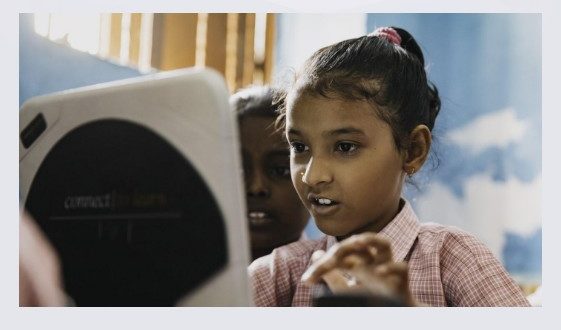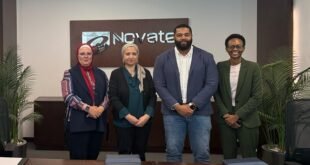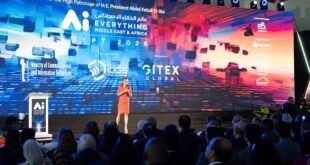In response to how the global COVID-19 Pandemic has disrupted education and learning
around the world, Ericsson has joined the UNESCO-led Global Education Coalition and
launched Ericsson Educate, a digital program delivering online learning content focused on
improving digital skills for students in secondary schools and universities.
Now more than ever, being digitally connected is vital to maintaining a sense of normalcy
during the current circumstances. Education is one critical sector particularly affected by
the global COVID-19 pandemic, with around 1.2 billion students and youth around the
world unable to attend traditional education institutions. This has placed a huge demand
for comprehensive online education programs on governments and education institutions
alike.
With education and learning being disrupted at unprecedented levels, Ericsson has joined
the UNESCO-led Global Education Coalition for COVID-19 response, partnering with like-
minded organizations to ensure the global pandemic doesn’t become a roadblock to
learning and teaching. UNESCO and Ericsson launched a new portal for teaching AI to kids
on May 13.
As its main contribution in this effort, the company has launched its latest Connect To
Learn initiative, Ericsson Educate, a digital learning program that has the potential to
benefit students all around the world who are currently disadvantaged due to lockdowns
and home quarantines. The program includes different learning paths, customized to the
educational needs and maturity level of the target audience, and can be accessed free of
charge via web portals specifically created by Ericsson.
Ericsson Connect To Learn program director, Zohra Yermeche, says: “The current pandemic
situation has affected students’ learning efficacy on a global scale never encountered
before. Without schools, friends, and direct contact with teachers to reach out to, studying
remotely brings its share of challenges for the learners. It is particularly difficult for
teachers as well, who have to adapt to the new conditions and rethink their approach to
teaching, with little to no adequate training on how to transition towards remote lesson
delivery and virtual classroom management. The need of the hour is digital learning
systems that are inclusive, scalable and easy to use, providing access to quality educational
content aimed to be both informative and engaging.”
The digital skills portal developed by Ericsson features courses on 5G networks, IoT, data
science, automation, artificial intelligence and machine learning. The curriculum aims to
strengthen the ICT skills of university students to increase their readiness for jobs in the
telecom and ICT sectors.
Ericsson Educate provides inclusive learning opportunities for students to help them
through this period of sudden and unprecedented disruption. Learning is made more
interesting through a comprehensive curriculum that encourages improving the digital
skills of students in secondary schools and universities, at the same time empowering
teachers to transition effectively to a more virtual medium of teaching and facilitating.
Teaching AI is another learning program developed by Ericsson in partnership with
UNESCO, which includes a free, multi-lingual artificial intelligence (AI) skills portal that can be accessed globally by parents and teachers, enabling them to support children and
students in home learning environments to learn about AI. UNESCO and Ericsson launched the new portal on May 13.
 التكنولوجيا وأخبارها بوابة مصر لأخبار تكنولوجيا المعلومات والإتصالات وفي أفريقيا كما تعتبر مصدر رئيسي للمعلومات حول تكنولوجيا المعلومات والاتصالات والفرص الاستثمارية المرتبطة بالاقتصاد الرقمي في المنطقة بالكامل
التكنولوجيا وأخبارها بوابة مصر لأخبار تكنولوجيا المعلومات والإتصالات وفي أفريقيا كما تعتبر مصدر رئيسي للمعلومات حول تكنولوجيا المعلومات والاتصالات والفرص الاستثمارية المرتبطة بالاقتصاد الرقمي في المنطقة بالكامل







